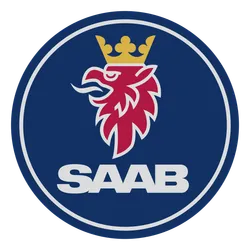

Saab News - February 2025 Summary
Stay updated with the latest Saab news and insights in this February 2025 summary. Explore all the important updates and brand developments.
Saab News Summary - February 2025
Mycarro AI
Mar 1, 2025
Company Developments
In February 2025, Saab took significant steps towards boosting its operational capabilities and industry presence. The month was characterized by a renewed focus on electric vehicle (EV) technologies and sustainability initiatives, aligning with broader global trends towards greener transportation solutions. The company announced collaborations with several technology firms to enhance its electric powertrains, leveraging next-generation battery technologies for its upcoming models. This strategic pivot is part of Saab’s commitment to transitioning its product lineup to include a growing share of electric vehicles by 2030.
Launch of New Models
Saab unveiled the prototype for its new electric SUV, the Saab Eclipse, at a press conference attended by industry leaders and journalists. The Eclipse is designed to cater to the burgeoning market for sustainable SUVs while maintaining the heritage of Saab’s innovative design philosophy. Expected to enter production later this year, the Eclipse features advanced aerodynamics and cutting-edge safety technologies, which Saab has been known for. Initial feedback from industry experts suggested that the Eclipse could position Saab advantageously in a competitive segment of the automotive market.
Investment in Production Facilities
To support the production of the Eclipse and other upcoming models, Saab announced a significant investment in its manufacturing facilities located in Sweden. The investment will be used to modernize the production line and incorporate advanced robotics, aiming to enhance both efficiency and productivity. Additionally, Saab emphasized its commitment to local job creation, with plans to hire skilled workers to meet the anticipated demand for its electric vehicles. This investment signifies Saab's intent to not only increase its output but also to ensure high-quality standards throughout its manufacturing processes.
Sustainability Initiatives
In line with global climate goals, Saab reiterated its efforts to reduce carbon emissions across its operations. February saw the company outline specific targets for reducing its overall environmental impact, including a pledge to achieve carbon neutrality by 2040. Saab is reviewing its supply chain and exploring partnerships with eco-friendly suppliers to ensure sustainable sourcing of materials. This initiative is a crucial aspect of Saab's overall strategy to align its business practices with environmental stewardship, resonating with consumers who prioritize sustainability in their purchasing decisions.
Expanding Market Presence
Moreover, Saab continued to expand its presence in international markets. The company announced plans to enter several emerging markets in Asia and South America, where demand for electric vehicles is rapidly growing. Through strategic partnerships with local distributors, Saab aims to establish a robust network that will enhance supply chain efficiencies and market responsiveness. This expansion is expected to complement Saab's existing customer base in Europe and North America and contribute towards achieving the company’s sales targets.
Conclusion
Overall, February 2025 was an eventful month for Saab as it navigated through significant transitions and strategic initiatives. The focus on electric vehicle development, sustainability, and market expansion underscores the brand's commitment to adapting to contemporary automotive trends while preserving its historical legacy. As Saab prepares for the launch of new models and invests in production capacities, it remains poised to make a noteworthy comeback in the automotive industry.